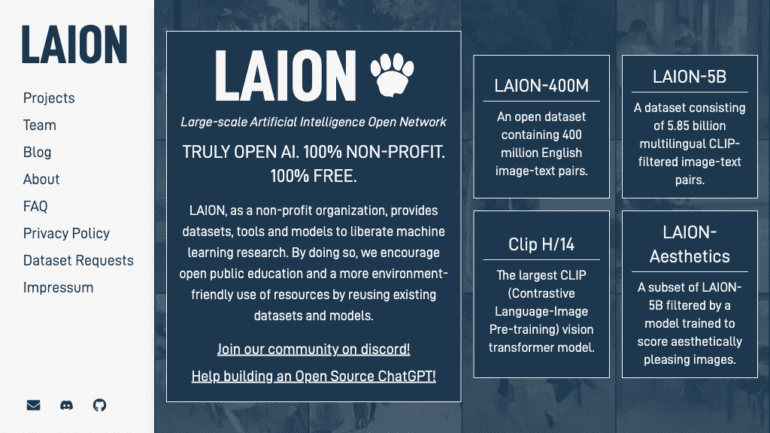TL;DR:
- LAION introduces Open Empathic, an initiative to bring emotional intelligence to open-source AI.
- Volunteers contribute audio clips for AI training, enabling machines to understand human emotions.
- LAION’s mission is to democratize AI research, promoting transparency and inclusivity.
- Challenges include the lack of universal emotion markers and potential bias in emotion detection.
- LAION aims to create culturally aware AI models and embraces community collaboration.
Main AI News:
In 2019, Amazon revolutionized its Alexa assistant by infusing it with the ability to detect user frustration and respond empathetically. This transformative feature aimed to enhance customer interactions and satisfaction. Fast forward to today, the group behind the data sets that fueled the text-to-image model Stable Diffusion is on a mission to make similar emotion-detecting capabilities accessible to all developers, free of charge.
Enter LAION, a nonprofit organization specializing in curating image and text data sets for training generative AI, including the renowned Stable Diffusion model. This week, they unveiled their groundbreaking initiative, the “Open Empathic” project. The objective? To equip open-source AI systems with empathy and emotional intelligence, ushering in a new era of human-AI interactions.
The Genesis of Open Empathic
The inception of Open Empathic arose from LAION’s deep-seated concerns about the lack of attention to emotional AI in the open-source community. As Christoph Schuhmann, a co-founder of LAION, pointed out, much like their apprehensions regarding non-transparent AI monopolies, they felt an urgent need to address this emotional gap.
Through Open Empathic, LAION is rallying volunteers to contribute audio clips to a comprehensive database. These audio clips will serve as the foundation for AI models, including chatbots and text-to-speech systems, capable of understanding human emotions. The goal? To enable AI to transcend mere comprehension of words and delve into the subtleties of expressions and tone shifts, fostering authentic and empathetic human-AI interactions.
The Birth of LAION: A Mission to Democratize AI
Founded in early 2021, LAION, an acronym for “Large-scale Artificial Intelligence Open Network,” is the brainchild of Schuhmann and a group of AI enthusiasts from a Discord server. Their mission is clear: democratize AI research and development resources, starting with comprehensive training data. With backing from donations and research grants, including support from AI startup Hugging Face and Stability AI, LAION aspires to harness AI’s power for the greater good.
Open Empathic: A Community-Driven Initiative
The initial phase of Open Empathic involves a website where volunteers annotate YouTube clips featuring individuals speaking. This annotation process includes transcriptions, audio and video descriptions, demographic details and, most importantly, emotional assessments. Volunteers can select from a range of emotions, creating rich and emotive annotations that capture a diverse array of languages and cultures.
The Vision: A Multilingual, Culturally Aware AI
LAION aims to develop AI models that can comprehend a wide variety of languages and cultural nuances, using real emotions and expressions as training data. Their ambition extends beyond boundaries, envisioning AI as a force for good in robotics, psychology, professional training, education, and even gaming. Picture robots providing support and companionship, virtual assistants sensing loneliness or anxiety, and diagnostic tools for psychological disorders—all guided by empathetic AI.
The Challenges of Emotion Detection
However, the path to achieving such a utopian vision of emotional AI is fraught with challenges. The foundation of emotion detection is built on shaky scientific ground, lacking universal markers for emotions. The majority of emotion-detecting systems draw from the work of psychologist Paul Ekman, but research suggests significant variations in emotional expressions across cultures and backgrounds.
Bias in Emotion Detection
One of the prominent concerns with emotion-detecting AI is bias, stemming from annotators who contribute to training data. Studies have shown that annotators tend to exhibit biases in their labeling, which can lead to skewed results. Addressing these biases is a critical aspect of LAION’s mission.
The LAION Approach: Collaboration and Quality Assurance
While LAION acknowledges the potential pitfalls, they believe in the power of a global community of enthusiasts working together to ensure the quality and authenticity of their data. They welcome scrutiny, suggestions, and changes from researchers, emphasizing transparency and safety in the development process.
A Future Shaped by Open Empathic
In a world where emotional intelligence and empathy are increasingly vital in AI systems, LAION’s Open Empathic project holds the promise of a more authentic and empathetic future. By fostering inclusivity and addressing bias, LAION aims to pave the way for AI that truly understands and respects human emotions, all within the spirit of open-source collaboration.
Conclusion:
LAION’s Open Empathic project marks a significant step toward democratizing emotional AI, fostering more authentic human-AI interactions. While challenges persist, such as biases in emotion detection, this initiative aligns with the growing market demand for empathetic AI solutions, particularly in fields like psychology, education, and robotics. The open development process and emphasis on inclusivity position LAION as a key player in shaping the future of emotional AI.

